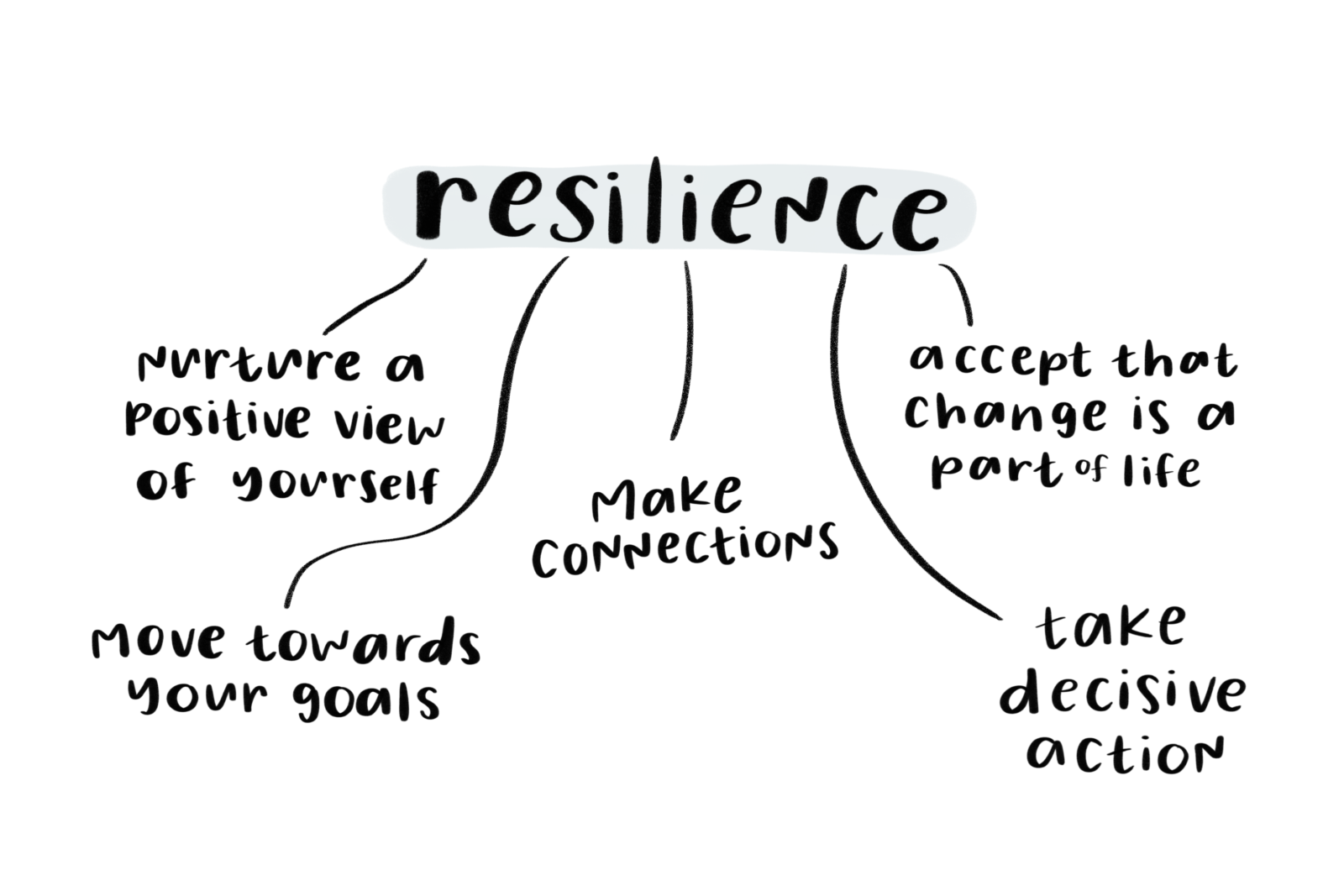Practical Steps To Build Resilience And Improve Mental Health

Table of Contents
Understanding Resilience and its Importance for Mental Health
Resilience is the ability to bounce back from adversity, stress, and trauma. It's not about avoiding hardship—life inevitably throws curveballs—but about possessing the mental and emotional strength to cope with challenges and emerge stronger. A strong sense of resilience significantly impacts your mental well-being, acting as a buffer against stress and reducing the risk of developing mental health conditions like anxiety and depression.
The link between resilience and stress management is crucial. When faced with stressful situations, resilient individuals are better equipped to manage their emotions, thoughts, and behaviors. They possess effective coping mechanisms and emotional regulation skills, allowing them to navigate difficulties without succumbing to overwhelming anxiety or despair.
- Resilience is not about avoiding hardship, but about bouncing back from it. This means accepting that setbacks are a normal part of life and focusing on learning from them.
- Strong resilience reduces the risk of developing mental health conditions. By building resilience, you create a protective shield against the negative impacts of stress and adversity.
- It improves coping mechanisms and emotional regulation. Resilient individuals are better at identifying and managing their emotions, preventing them from spiraling out of control.
- It fosters a sense of hope and optimism. Even in difficult times, resilience allows you to maintain a positive outlook and believe in your ability to overcome challenges.
Practical Steps to Build Resilience
Building resilience is a proactive process that requires consistent effort and self-awareness. Here are some practical steps you can take to cultivate resilience and strengthen your mental well-being:
Cultivating Positive Self-Talk and Mindfulness
The way you talk to yourself significantly impacts your emotional state. Negative self-talk can fuel anxiety and depression, while positive self-compassion fosters resilience. Mindfulness techniques, like meditation and deep breathing exercises, help you become more aware of your thoughts and emotions without judgment, enabling better emotional regulation.
- Challenge negative thoughts and replace them with positive ones. Identify negative thought patterns and actively challenge their validity. Replace them with more realistic and positive affirmations.
- Practice self-care and prioritize your well-being. Engage in activities that bring you joy and relaxation. This could include anything from spending time in nature to pursuing a hobby.
- Engage in mindfulness meditation daily for improved focus and emotional regulation. Even a few minutes of daily meditation can make a significant difference in managing stress and improving mental clarity.
- Utilize journaling to process emotions and identify negative thought patterns. Writing down your thoughts and feelings can help you gain clarity and identify patterns of negative thinking.
Building Strong Social Connections and Support Networks
Strong social connections are a vital component of resilience. Feeling supported and connected to others provides a sense of belonging and strengthens your ability to cope with adversity.
- Spend quality time with loved ones. Nurture your relationships with family and friends. Meaningful connections offer emotional support and a sense of community.
- Join support groups or communities. Connecting with others who share similar experiences can provide validation and a sense of understanding.
- Reach out to friends and family for help. Don't be afraid to ask for support when you need it. Your loved ones care about you and want to help.
- Nurture meaningful connections. Invest time and energy in building and maintaining healthy relationships.
Adopting a Healthy Lifestyle for Enhanced Resilience
Physical health and mental well-being are intrinsically linked. A healthy lifestyle contributes significantly to your resilience.
- Prioritize regular physical activity. Exercise releases endorphins, which have mood-boosting effects. Aim for at least 30 minutes of moderate-intensity exercise most days of the week.
- Eat a balanced and nutritious diet. Nourishing your body with healthy foods provides the energy and nutrients your brain needs to function optimally.
- Get sufficient sleep each night. Aim for 7-9 hours of quality sleep per night. Sleep deprivation can negatively impact mood and cognitive function.
- Limit alcohol and caffeine consumption. Excessive alcohol and caffeine can exacerbate anxiety and other mental health challenges.
Seeking Professional Help When Needed
While building resilience is empowering, it's important to recognize when professional help is necessary. Seeking support is a sign of strength, not weakness.
- Persistent feelings of sadness, hopelessness, or anxiety. If these feelings persist for an extended period, it's crucial to seek professional help.
- Difficulty coping with daily life stressors. If you find yourself struggling to manage everyday challenges, a mental health professional can provide guidance and support.
- Significant changes in sleep, appetite, or energy levels. These changes can be indicators of underlying mental health issues.
- Thoughts of self-harm or suicide. If you're experiencing suicidal thoughts, please seek immediate professional help. Contact a crisis hotline or mental health professional immediately.
- Consider therapy, counseling, or psychiatric services. These professionals can provide evidence-based interventions to address mental health challenges and enhance resilience.
Conclusion
Building resilience is a journey, not a destination. By incorporating these practical steps—cultivating positive self-talk, nurturing social connections, and adopting a healthy lifestyle—you can significantly improve your mental health and equip yourself to navigate life’s challenges with greater strength and resilience. Remember, seeking professional help is a sign of strength, not weakness.
Start building your resilience and improving your mental health today. Take one small step towards a more resilient and fulfilling life. Learn more about strengthening your mental well-being and improving your resilience by exploring further resources on [link to relevant resources]. Prioritize your mental health and invest in your resilience!

Featured Posts
-
 Rey Fenix Joins Smack Down Next Weeks Big Surprise
May 20, 2025
Rey Fenix Joins Smack Down Next Weeks Big Surprise
May 20, 2025 -
 This Ai Quantum Computing Stock A Dip Buying Opportunity
May 20, 2025
This Ai Quantum Computing Stock A Dip Buying Opportunity
May 20, 2025 -
 Agatha Christies Poirot Adaptations And Legacy
May 20, 2025
Agatha Christies Poirot Adaptations And Legacy
May 20, 2025 -
 Monday Severe Weather Increased Storm Chance Overnight
May 20, 2025
Monday Severe Weather Increased Storm Chance Overnight
May 20, 2025 -
 Lekler I Khemilton Perviy Duet Ferrari Diskvalifitsirovanniy Na Odnoy Gonke
May 20, 2025
Lekler I Khemilton Perviy Duet Ferrari Diskvalifitsirovanniy Na Odnoy Gonke
May 20, 2025
